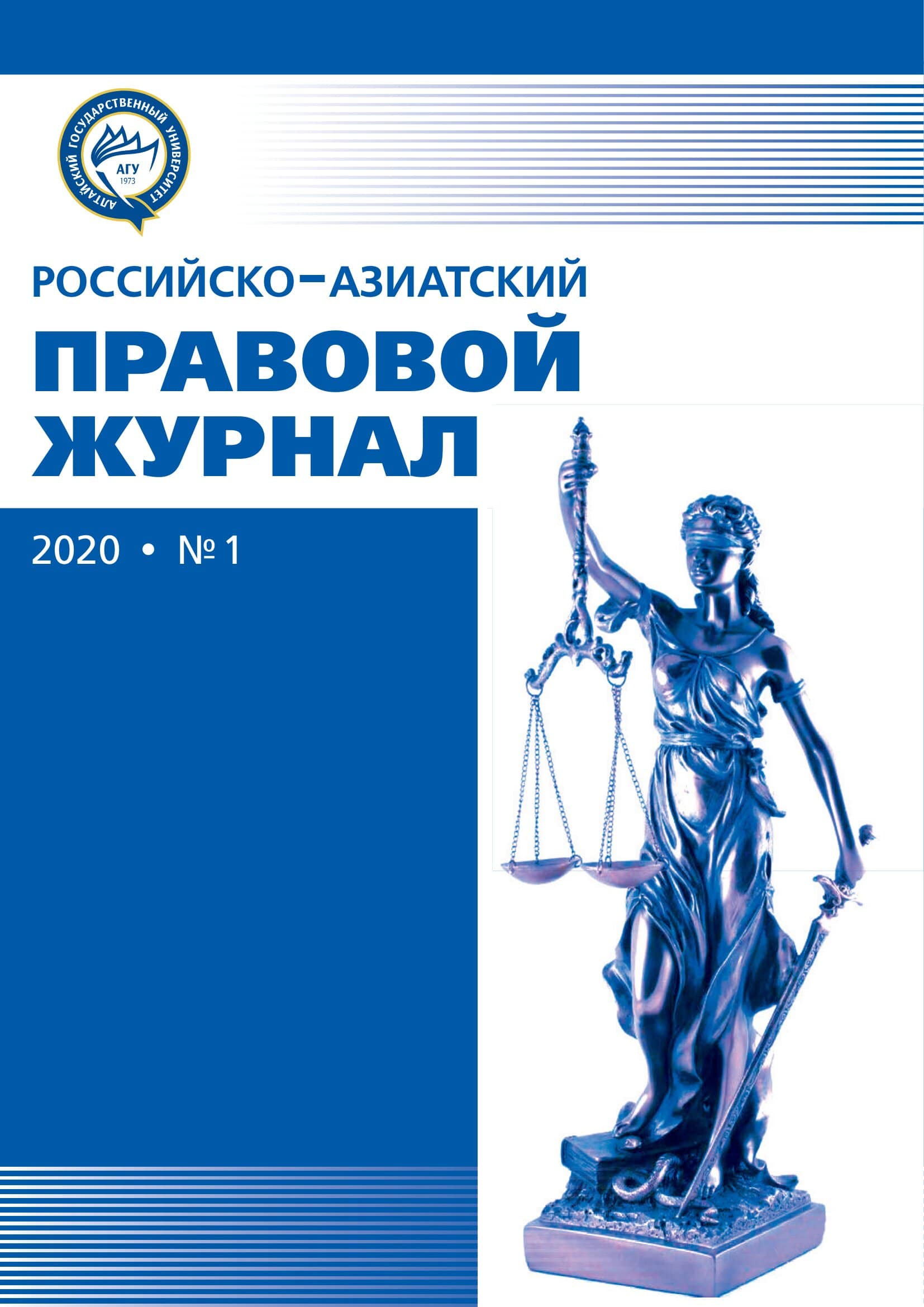ADMISSIBILITY OF PROVIDING INFORMATION CONSTITUTING MEDICAL CONFIDENTIALITY IN THE PUBLIC INTEREST
УДК 347.121.1 ББК 67.404
Abstract
The article is devoted to this type of confidential information about a citizen, as information constitutinga medical secret. The legal regime of medical confidentiality is considered in the context of its relationshipwith personal secrecy and the right to privacy. The author concludes that initially information about thehealth of a citizen is protected under the regime of personal secrets. Herewith, the regime of medicalconfidentiality is called upon to provide additional guarantees to ensure the citizen’s right to confidentialinformation regarding his health. It has been established that restrictions on a citizen’s right to privacy andpersonal secrecy may arise from the characteristics of the legal regime of other types of secrets. Thus, theconsolidation in Russian law of the grounds for providing information constituting medical confidentiality tothird parties without the consent of a citizen by their nature and legal consequences limits the citizen’s rightsto privacy. At the same time, such restrictions can be justified if they are designed to ensure the protection ofpublic interests. On the example of road safety, the shortcomings of the existing legal regulation are shown.
Downloads
References
2. Баршев В. Врач предупредит ГАИ // Российская газета. Федеральный выпуск. 2019. №40 (7798). URL: https://rg.ru/2019/02/21/mvd-poluchit-dostup-k-dannym-minzdrava-o protivopokazaniiah-dliavoditelej.html (дата обращения: 02.02.2020).
3. Малеина М.Н., Агафонова Н.Н., Артеменков С.В., Безбах В.В. и др. Комментарий к статье 150. Научно-практический комментарий к Гражданскому кодексу Российской Федерации, ч. I (постатейный) / под ред. В.П. Мозолина, М.Н. Малеиной. М., 2004.
4. Пушкарева А.Н. К вопросу о понятии и признаках врачебной (медицинской) тайны по законодательству Российской Федерации // Медицинское право. 2016. №6.
5. Махник О.П. Конституционное право на личную и семейную тайну. Врачебная тайна // Конституционное и муниципальное право. 2006. №8. URL: http://www.consultant.ru/ (дата обращения: 02.02.2020).
6. По делу о проверке конституционности ч. 2 и 3 ст. 13, п. 5 ч. 5 ст. 19 и ч. 1 ст. 20 Федерального закона «Об основах охраны здоровья граждан в Российской Федерации» в связи с жалобой гражданки Р.Д. Свечниковой : постановление Конституционного суда РФ от 13.01.2020 №1-П. URL: http://ivo.garant.ru/#/document/73390377/paragraph/25:0 (дата обращения: 02.02.2020).
7. Recommendation CM/Rec (2019) 2 of the Committee of Ministers to member States on the protection of health-related data. URL: https://www.apda.ad/sites/default/files/2019 03/CM_Rec%282019%292E_EN.pdf (дата обращения: 02.02.2020).
8. Холопова Е.Н., Дегтярев А.В. Охрана информации, отнесенной к врачебной тайне, на государственной и муниципальной службе // Медицинское право. 2017. №2.
9. О применении судами некоторых положений раздела I части первой Гражданского кодекса Российской Федерации : постановление Пленума Верховного суда РФ от 23.06.2015 №25. URL: http://www.consultant.ru/ (дата обращения: 02.02.2020).
10. Кротов А.В. Концепция «широкого» толкования права на частную жизнь в решениях Конституционного суда Российской Федерации // Актуальные проблемы российского права. 2018. №5.
Russian-Asian Law Journal is a golden publisher, as we allow self-archiving, but most importantly we are fully transparent about your rights.
Authors may present and discuss their findings ahead of publication: at scientific conferences, on preprint servers, in public databases, and in blogs, wikis, tweets, and other informal communication channels.
Russian-Asian Law Journal allows authors to deposit manuscripts (currently under review or those for intended submission) in non-commercial, pre-print servers such as ArXiv.
Authors who publish with this journal agree to the following terms:
- Authors retain copyright and grant the journal right of first publication with the work simultaneously licensed under a Creative Commons Attribution License that allows others to share the work with an acknowledgement of the work's authorship and initial publication in this journal.
- Authors are able to enter into separate, additional contractual arrangements for the non-exclusive distribution of the journal's published version of the work (e.g., post it to an institutional repository or publish it in a book), with an acknowledgement of its initial publication in this journal.
- Authors are permitted and encouraged to post their work online (e.g., in institutional repositories or on their website) prior to and during the submission process, as it can lead to productive exchanges, as well as earlier and greater citation of published work (See The Effect of Open Access).








